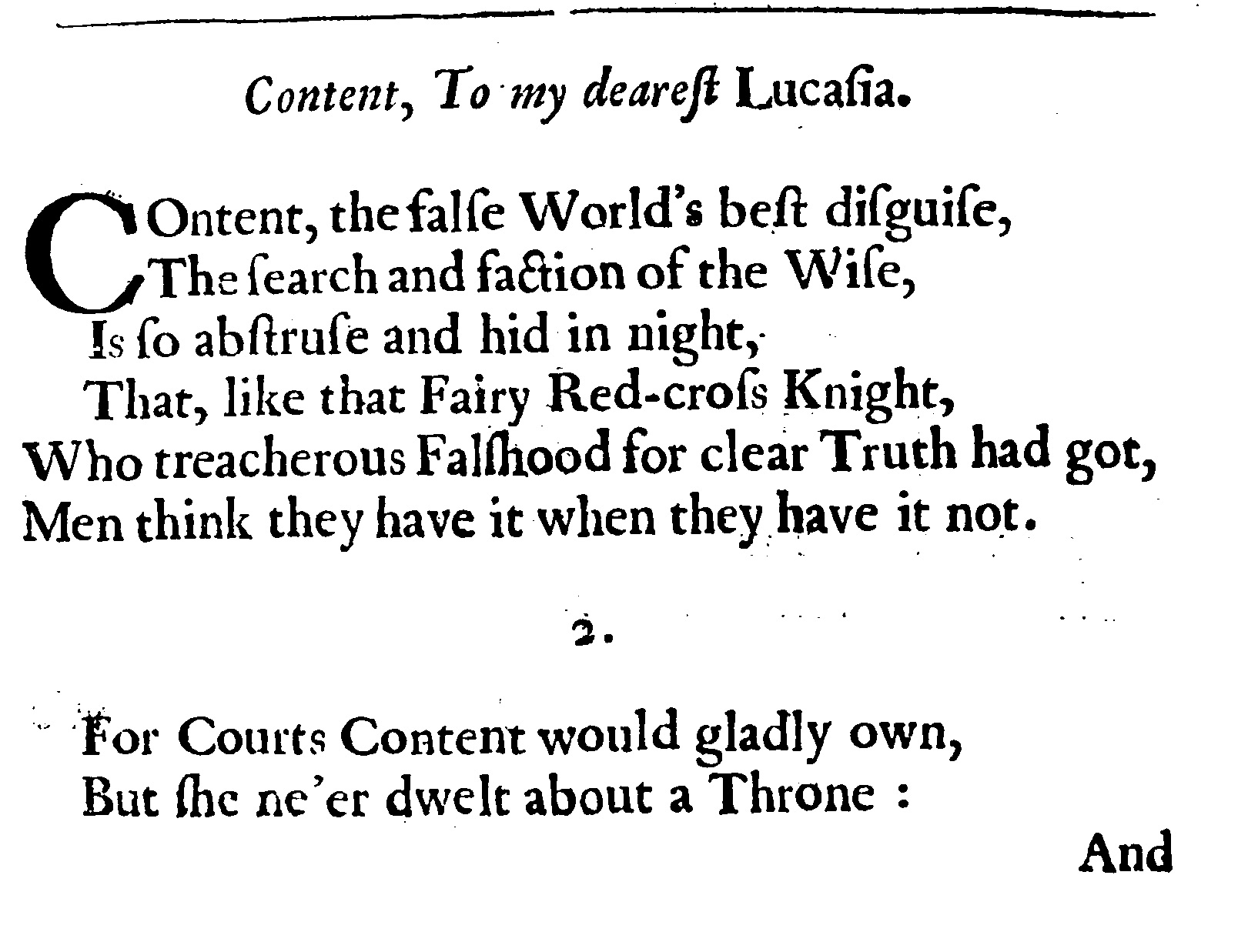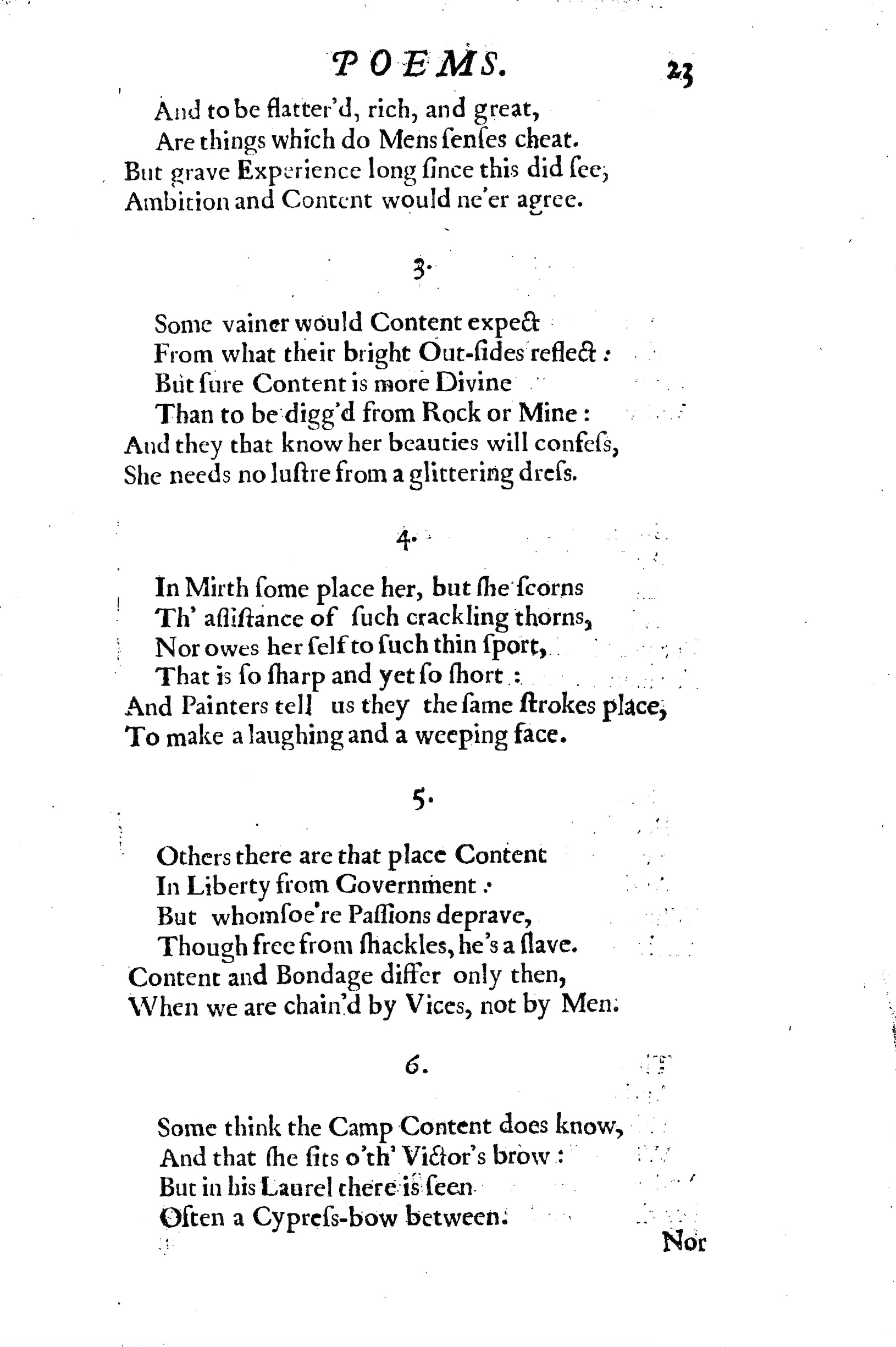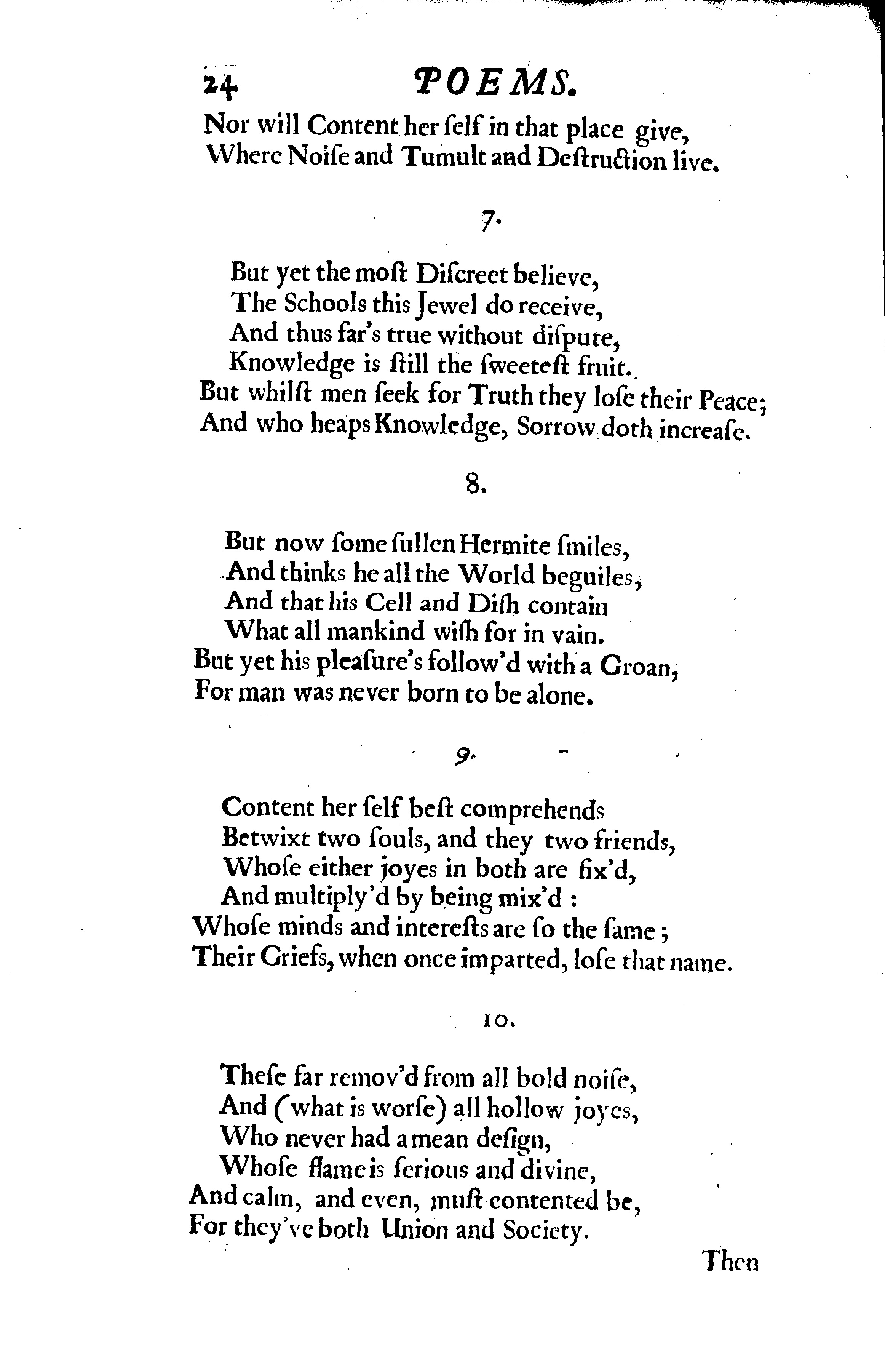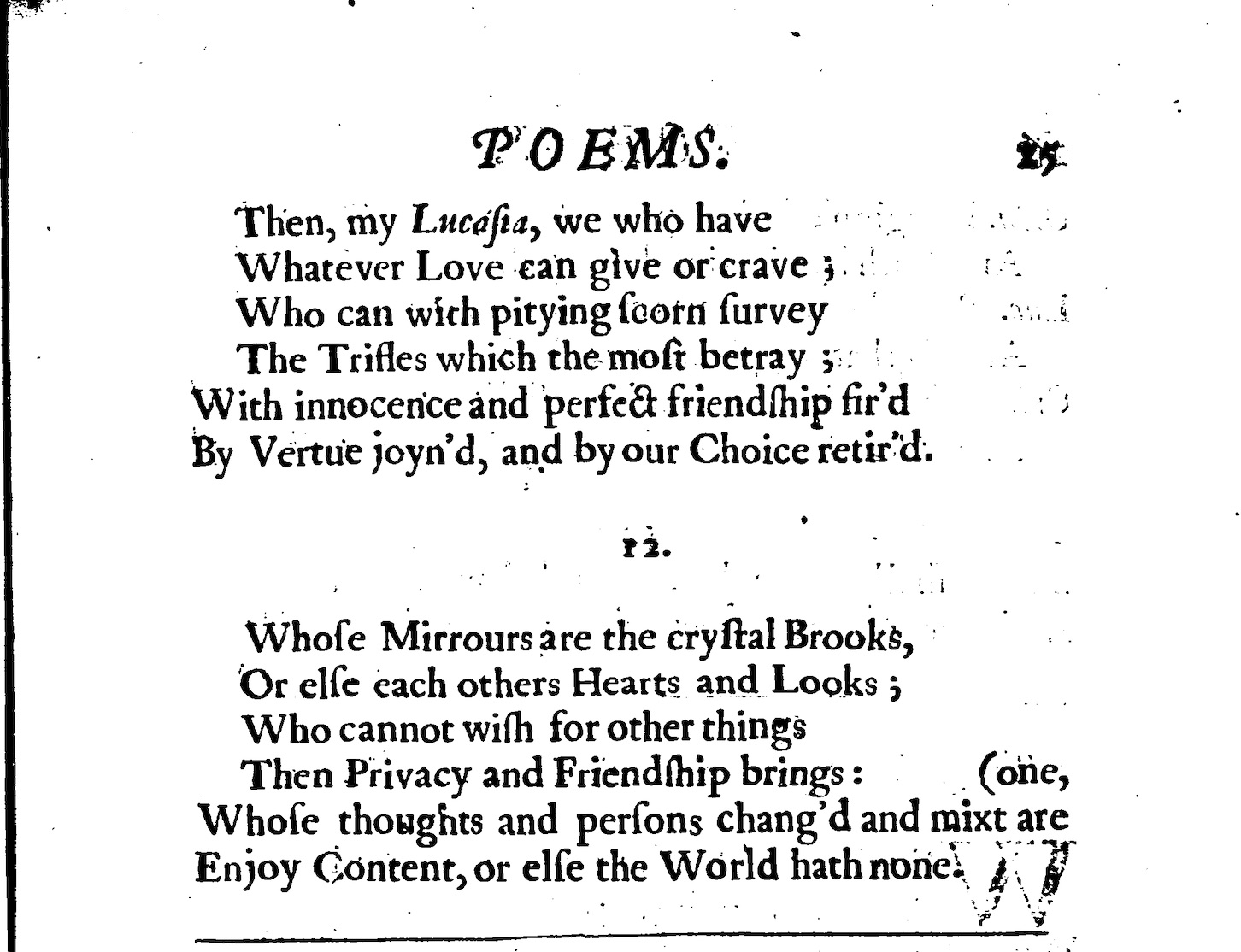"Content, to my dearest Lucasia"
By
Katherine Philips
Transcription, correction, editorial commentary, and markup by Students and Staff at The University of
Virginia, John O'Brien, Sara Brunstetter, Sara Kathleen Doyle, Rachel Retica
22
Content, To my dearest
LucasiaLucasiaLucasia "Lucasia" refers to
Ann Owen, Philips's closest friend and the person to whom many of her poems
are addressed. The poem is a meditation on where and how they might find
true "contentment."
Content, the false World's best disguise,
The search and faction of the Wise
Is so abstruseabstruse
abstruseDifficult to understand; obscure,
recondite. (Oxford English Dictionary) and hid in night,
That, like that Fairy Red-cross
KnightRed-CrossRed-CrossThe Red Cross
Knight is the protagonist of Book I of Edmund Spenser's The Faerie Queene, published in the 1590s.
Philips is referring to a passage where the Red Cross Knight mistakes
"treacherous falsehood" in the form of a character named Duessa for the
"clear Truth" of Fidessa. The Red Cross Knight is a symbol for purity
and the Anglican church, and Duessa can be read as a symbol of the false
or duplicitous Roman Catholic church.,
Who treacherous Falshood for clear Truth had got,
Men think they have it when they have it not.
For Courts Content would gladly own,
But she ne'er dwelt about a Throne:
23
And to be flatter'd, rich, and great,
Are things which do Mens senses cheat.
But grave Experience long since this did see,
Ambition and Content would ne'er agree.
Some vainer would Content expect
From what their bright Out-sides reflect:
But sure Content is more Divine
Than to be digg'd from Rock or MineMineMineThat is, Philips views
contentment as being more valuable than any jewel that can be mined from
the earth.:
And they that know her beauties will confess,
She needs no lustre from a glittering dress.
In mirth some place her, but she scorns
Th'assistance of such crackling thorns,
Nor owes her self to such thin sport,
That is so sharp and yet so short:
And Painters tell us they the same strokes place,
To make a laughing and a weeping face.
Others there are that place Content
In Liberty from Government:
But whomsoe're Passions deprave,
Though free from shackles, he's a slave.
Content and Bondage differ only then,
When we are chain'd by Vices, not by Men.
Some think the Camp Content does know,
And that she sits o'th'Victor's brow:
But in his LaurelLaurelLaurelThe foliage of the laurel tree is an
emblem of victory or of distinction in poetry, as well as military
conquest. (Oxford English Dictionary) there is seen
Often a Cypress-bowCypress-bowCypress-bowCypress is a common material for archery bows, but also associated with
mourning. between.
24
Nor will Content her self in that place give,
Where Noise and Tumult and Destruction live.
But yet the most Discreet believe,
The Schools this Jewel do receive,
And thus far's true without dispute,
Knowledge is still the sweetest fruit
But whilst men seek for Truth they lose their Peace;
And who heaps Knowledge,
Sorrow doth increaseEcclesiastesEcclesiastesEcclesiastes 1:18..
But now some sullen HermiteHermiteHermite Alternative
spelling for hermit: one who from religious motives has retired into
solitary life (Oxford English Dictionary). smiles,
And thinks he all the World beguiles,
And that his Cell and DishCellCellRefers to the religious hermits who slept in
a cell and used one dish for meals. contain
What all mankind wish for in vain.
But yet his pleasure's follow'd with a Groan,
For man was never born to be alone.
Content her self best comprehends
Betwixt two souls, and they two friends,
Whose either joyes in both are fix'd,
And multiply'd by being mix'd:
Whose minds and interests are so the same;
Their Griefs, when once imparted, lose that name.
These far remov'd from all bold noise,
And (what is worse) all hollow joyes,
Who never had a mean design,
Whose flame is serious and divine,
And calm, and even, must contented be,
For they've both Union and Society.
25
Then, my Lucasia, we who have
Whatever Love can give or crave;
Who can with pitying scorn survey
The Trifles which the most betray;
With innocence and perfect friendship fir'd
By Vertue joyn'd, and by our Choice retir'd.retiredretiredRetired in the
sense of having retired to the countryside, where Philips and Owen were
living, having left London during the Civil War.
Whose Mirrours are the crystal Brooks,
Or else each others Heart and Looks;
Who cannot wish for other things
ThenThenThen"Then" as in "Than":"Than that which privacy and friendship
bring." Privacy and Friendship brings:
Whose thoughts and persons chang'd and mixt are one,
Enjoy Content, or else the World hath none.



